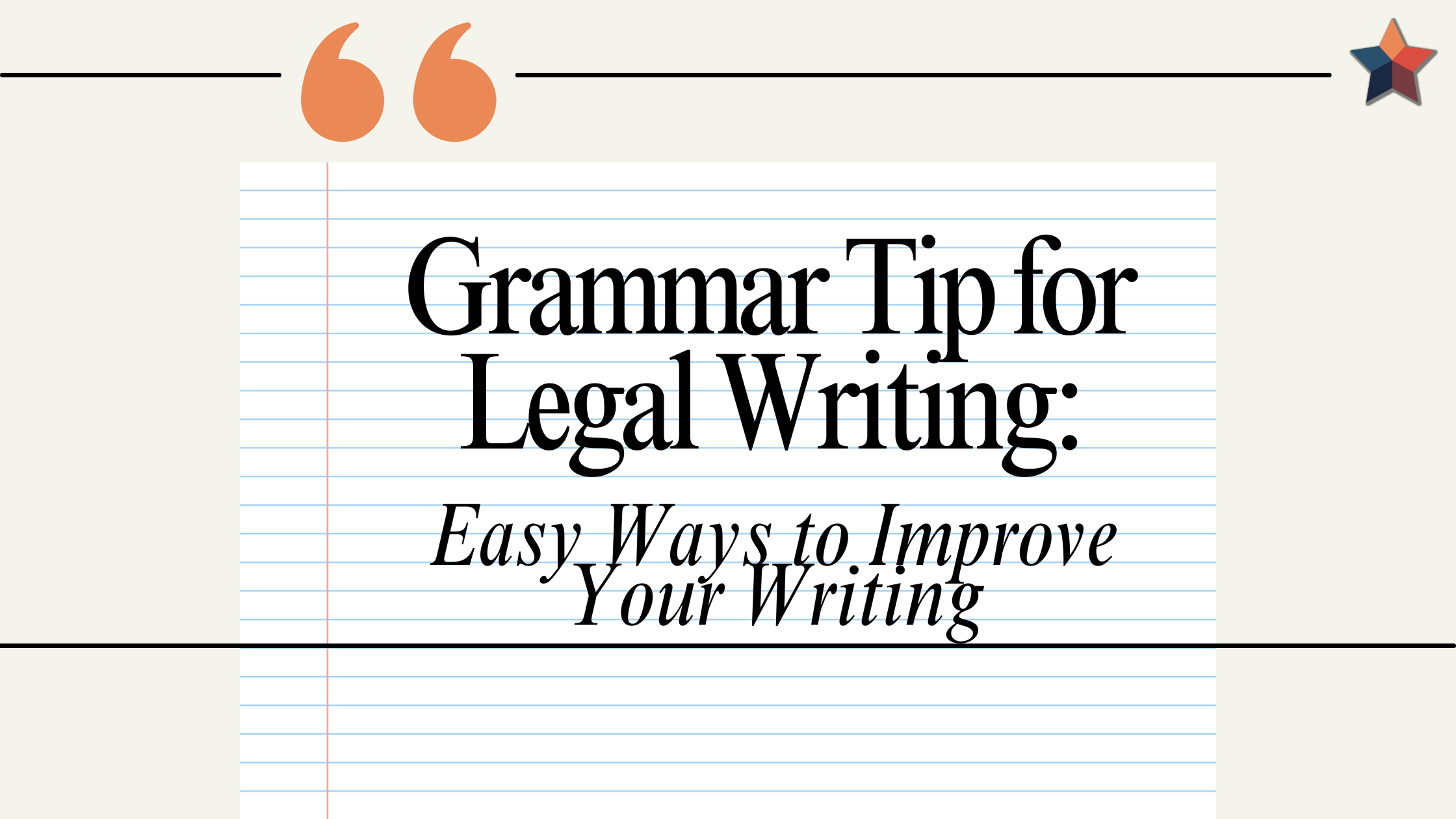Improve Your Writing with These Safe Bets
Published on June 10, 2024 From The Editors

Writers often face a choice between one option that sounds natural but that some consider poor word choice or grammatically incorrect and a second option that most consider correct but that sounds awkward. Finding that often-elusive third option, one with broad appeal—that is, text that both sounds natural and passes muster with grammar sticklers—sometimes requires rewriting to avoid contentious usage issues entirely.
Prescriptive vs Descriptive Language
Note the two instances of “consider” above. English is not a prescriptive language. We don’t have an equivalent of the Académie française, or the French Academy, which publishes the official French dictionary. English dictionaries and usage guides are descriptive, which means they simply show how most readers will likely interpret our writing. That’s why we can find the words ain’t and irregardless in dictionaries—along with recommendations against using them in most situations. Just because words are “in the dictionary” doesn’t mean readers won’t judge us if we use them.
Style in American English
In American English, how we use words and punctuation is largely a matter of style. Do we use one space between sentences or two? Do we use the Oxford comma or not? Do we include a hyphen in “e-mail”? It’s why most publishers choose one dictionary over others and keep a house style guide: to ensure consistency throughout a given work without having to search every time a style choice surfaces while editing a manuscript. We know the house style, we make the edit, and we move on.
How to Impart Clarity in Your Writing
It’s also important to note that written English lacks the additional clues inherent in speech and body language, so what’s clear when spoken might confuse if written verbatim. Writing therefore leans more heavily on word choice and word order to convey meaning, and punctuation’s entire role, of course, is to approximate aspects of speech.
Readers also expect more from writing, especially in formal text, so careful proofreading and revision are crucial. Which brings us back to the conundrum: If I “correct” text into something that sounds stilted or forced, I’ll lose some readers, but if I don’t touch it, I’ll lose others.
Natural Sounding, Grammatically Correct Usage Choices
What if I told you that some usage choices are safe bets, language that both sounds natural and gets the nod of approval from grammar nitpickers, language that risks losing no readers? Such choices do exist, and here are some examples:
|
begs the question |
The phrase begs the question traditionally means a logical fallacy in which a statement assumes as fact something that has not yet been established— for example, asking “Have you stopped beating your spouse yet?” without having provided evidence for the existence of any beating in the first place. Nothing is lost by reserving the phrase begs the question for that use and instead using a phrase such as prompts the question or raises the question when that is all that is meant. |
| chemicals |
All matter down to the atomic level consists of chemicals. There is no “chemical-free” food, drink, or even air. We should go ahead and write what we mean in those situations anyway: harmful chemicals. It’s still vague, but at least it won’t prompt those “Well, actually . . .” comments from science-minded readers. |
| compose; comprise |
The traditional difference between these words is that the whole comprises the parts and the parts compose the whole. We might write, for example, that a play “comprises five acts” or “is composed of five acts.” Avoid the phrase is comprised of at all costs. A simple solution is to use more colloquial language, such as “the play has five acts” or “the play consists of five acts.” |
| data |
The word data can take either a singular or a plural verb (for example, “the data is” or “the data are”), depending on whether it’s used as a mass noun or a count noun in the given context. In science, the word data is almost always considered plural. Outside of science writing, however, some readers will judge us regardless of our choice. The only winning move (as WOPR might put it) is to write around it with phrases such as according to the data, based on the data, or judging by the data. For example, instead of writing “the available data show that roughly . . . ,” write “according to the available data, roughly . . .” |
| eager |
vs. anxious: Readers intuitively use context to determine whether a writer uses the word anxious to mean desire or to mean fear, unease, or trepidation. Still, sometimes it’s ambiguous. Using the word eager when the intended meaning is desire can reduce unintentional ambiguity. |
|
clichés |
Most readers don’t notice clichés, and those who do usually cringe. If I read “white as snow,” two sentences later all I’ll remember will be the “white” part, much like how I don’t consciously notice details along my usual route to work, because I’ve seen them thousands of times. Text that will be forgotten (at best) anyway might as well be left out from the start. |
| infer |
vs. imply: Although one interpretation of the word infer is to imply, no readers will judge if we limit the word imply to saying or writing between the lines and the word infer to hearing or reading between the lines, in a word relationship like that of give and take, of teach and learn, and of emigrate and immigrate. |
| literally |
Yes, we sometimes use the word literally to mean figuratively, and we all understand that it’s hyperbole, exaggeration for effect. Even if we substitute a word such as about, almost, or virtually (for example, “I almost died when Alex quit over that”), it’s still unlikely to be literally accurate. And substituting the word figuratively does not help (“I figuratively died when . . .”). If you have a dry sense of humor, go for it, though it will convey irony more than anything else. Try using language more literally accurate (“I was astounded when . . .”) or simply omitting the cliché literally entirely (“I died when . . .”), which is still a hyperbolic metaphor, but arguably more powerful. |
|
more important; most important |
vs. importantly: The widespread acceptance of the phrases more importantly and most importantly as adverbs is recent, so some old sticks-in-the-mud will still judge us if we use the -ly versions. Leave the -ly off for now, except when using the word importantly without preceding it with more or most. |
| myriad |
Contrary to what some believe, the word myriad can be used not just as an adjective (“with myriad complex issues”), but also as a noun (“in a myriad of procedural settings”). To be more concise, stick to using it only as an adjective. |
|
natural; unnatural |
One set of antonyms, so many meanings. Use a word or phrase that more clearly conveys the intended meaning, for example, typical versus atypical; human made versus not; or supernatural versus within the physical realm. |
|
nauseous |
Some insist that the word nauseous should be used only for describing what causes nausea and not for describing those affected— that we should not write, for example, that someone feels nauseous. The simple solution is to stick to the word nauseating for the cause and nauseated for the affected, both of which are more common anyway. |
| oral |
vs. verbal: Although some use the word verbal to mean spoken instead of written, the word verbal literally means “with words,” which can be written or spoken, which is why a phrase such as verbal contract can be ambiguous. We can achieve greater clarity using the word oral, which means “of the mouth.” Think oral hygiene and oral testimony. |
| podium |
vs. lectern: Nitpickers insist that the word podium means the platform the speaker stands on and the word lectern means the stand the speaker stands behind and rests notes on. Go ahead and use the word lectern if that is what is meant; no one will misunderstand. To avoid some readers misperceiving our speakers as acrobats, though, instead of writing that a speaker steps onto or is standing on the podium, choose the word dais, platform, or stage. However, it’s safe to write that so-and-so spoke, read, or lectured from the podium. |
| poisonous; venomous |
Simply put, if we can die from biting something, it’s poisonous; if we can die from something biting us, it’s venomous. Of course reality is more complicated, but the distinction stands when it comes to writing: some readers will roll their eyes if I write “poisonous snake”; none will if I write “venomous snake” (unless I’m writing about the Asian tiger snake, which is both venomous and poisonous). |
| reason or why |
vs. reason why: Some consider “reason why” redundant. None misunderstand simply “The reason is . . .” or “It’s why . . .” |
| sensuous |
It’s common to view the words sensual and sensuous as synonyms, though they traditionally differ, the former meaning pursuit or satisfaction of physical pleasure or gratification for its own sake, often carrying sexual overtones, and the latter meaning pleasing to the senses in a more direct or aesthetic way. That mix-up, though, leaves some readers inferring sexual connotations when encountering the word sensuous. To avoid misleading them, we might instead try phrases such as pleasing to the senses or aesthetically pleasing. |
|
very unique; weak modifiers in general |
The argument goes that if something is unique, it’s one of a kind, so modifiers such as very and somewhat are unnecessary. The reality is that people also sometimes use the word unique to mean only unusual or rare, even if not one of a kind, and we sometimes pair even those words with modifiers— for example, very unusual or somewhat rare. The broader problem here does not hinge on the word unique; the problem is that using modifiers such as very and somewhat is often a lazy way of shifting the meaning of one word instead of finding a more accurate word. I can write that someone walks very slowly, or I can write that the person trudges, plods, lumbers, waddles, saunters, or shuffles, depending on exactly what I mean by very slowly. Modifying a word with very does not plant a more precise image in the reader’s mind nearly as well as simply choosing a better word. That is, in essence, a writer’s job: to find the exact word. |
|
-ward words |
vs. -wards: Including the -s on the ends of words like afterwards, backwards, forwards, and towards is more common in British English than in American English, possibly because stress tends to move toward words’ first syllables in American English and the -s often ends up silent anyway. Making it a policy to leave off the -s will grate fewer American readers’ sensibilities and ensure consistency. |
|
would like to |
Reserve for the hypothetical or desired rather than an act itself. For example, avoid writing, “Dear Taylor, we’re writing because we’d like to apologize for . . .” If we’re apologizing, we should just do so. While we’re at it, omit “we’re writing” as well, since that’s inherent in the fact that we’re corresponding. Be straightforward: “Dear Taylor, we’re sorry we . . .” |

Roger Siebert
Roger Siebert is senior editor at Texas Bar Books, where he has worked for eighteen years. Roger earned a BA in English at the University of Missouri–Kansas City and an MA in creative writing at Florida State University, where he also taught first-year composition. In his spare time he enjoys sailing and rowing his homemade boat.